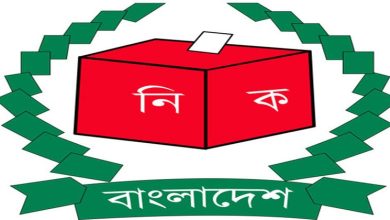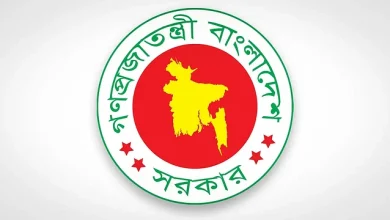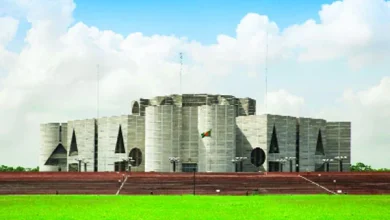Why keep coal underground while energy import bill soars, ask experts
Participants in the discussion recommended maximum use of local energy resources for power generation along with the development of robust and modern transmission and distribution networks to reduce system loss and ensure high quality power.
Two decades ago, Bangladesh generated 90% of its electricity

needs from domestic fuel; however, the figure has dwindled to approximately 50%. Projections estimate that use of domestic fuel for power generation will see a further drop to 10% by 2030.
Bangladesh’s energy landscape is getting increasingly reliant on imports, raising concerns among experts who advocate for a strategic approach to utilise the nation’s domestic energy sources.
At a roundtable titled “Bangladesh’s persistent energy crisis and solutions” on Tuesday, they emphasised tapping Bangladesh’s coal reserves alongside exploring oil and gas options and simultaneously expanding the footprint of renewable energy.
Sharier Khan, executive editor of the newspaper, moderated the discussion held.
Participants in the discussion recommended maximum use of local energy resources for power generation along with the development of robust and modern transmission and distribution networks to reduce system loss and ensure high quality power.
Experts also advocated for the adoption of energy efficient machines for keeping power demand in check. Increased use of renewable energy would also be advantageous in the long run, they said.
Addressing the loopholes in the gas sector alone would help save $300 million a year.
Humayun Rashid, managing director, Energypac
They stressed a clear and strong political will and stronger market based economy to tackle the energy crisis and keep the cost of power manageable.
Engineer Khondkar Abdus Saleque, an international energy consultant, outlined the potential of harnessing coal from local mines for electricity generation. He stated that through open-pit mining, these coal reserves could sustain a 10,000MW power generation capacity for 50 years.
Also, Saleque expressed dismay over the fact that around 70% of the land remains untapped for oil and gas exploration. Additionally, he pointed out a lack of initiatives in the past 12-13 years to explore offshore gas resources. Saleque, a former high-ranking official of Pertobangla, highlighted the critical need for comprehensive exploration efforts to avoid a situation like “energy famine”.
Dr M Tamim, a professor of Petroleum and Mineral Resources Engineering at the Bangladesh University of Engineering and Technology (Buet), attributed the energy crisis to flawed policies rooted in inflated demand forecasts.
Saleque echoed this sentiment, underscoring the detrimental impact of implementation weaknesses, inefficiencies, and, to some extent, corruption in the energy sector.
What deepened the common crisis?
Besides the pandemic and the two ongoing wars that hurt the global economy and energy situation, Bangladesh was set to face an energy crisis anyway even without the negative catalysts, said Saleque.
“For Bangladesh, we have the question of whether our energy and power policies were right in the previous decade,” he said.
According to him, not extracting coal from Dinajpur, leaving 70% of the land unexplored and no oil-gas exploration in offshore blocks for more than a decade was a national failure, especially when the proven gas reserve was depleting and the country massively upscaled its power generation.
Meanwhile, the increased dependency on imported Liquefied Natural Gas (LNG) backfired during the global energy market volatility amid the depleting foreign currency reserve.
The government lacked the will and efficiency in securing good deals in LNG import for energy security, he said.
The Bangladesh Petroleum Corporation (BPC) and Petrobangla are struggling to clear their dues, the country is having a hard time to meet the 13,000-14,000MW power demand, despite having an installed capacity of over 28,000MW.
And the crisis is here to remain until 2026 as LNG capacity will not increase before that. Even the maximum gas exploration and extraction efforts right now will take 8-9 years to show results.
“Even if we can avert famine in all other sectors, the energy sector will face it by the next 2-3 years,” said Saleque.
Fulbari coals are at mining depth, Bangladesh does not need its all-out efforts for clean energy while the use of coal in power generation globally is still at the 1973 level, he said, stressing coal mining for efficient power generation.
Dr M Tamim said the electricity demand assessment was based on inflated economic forecasts and the flat curve of industrial demand for electricity since 2017 reflects the lack of quality and reliability of the grid electricity, while industries opted for captive power.
The forecasted 40,000MW demand in 2030 and 60,000MW by 2040 is another round of inflated demand assessment as it counts on the average of an unrealistic government target for 9% GDP growth rate for two decades in a row and the fundamental-based projection by development partners, added the professor who served a caretaker government as energy advisor.
Confidence Group Vice Chairman Imran Karim, former president of the Bangladesh Independent Power Producers Association (BIPA), said around 2,000MW electricity is being produced by extremely inefficient plants and those should be phased out for the sake of energy security as they are wasting expensive fuel every day.
“If we consider the multilayer state subsidy in energy, the fuel guzzler power plants having sub 38% efficiency rates are costing nearly Tk25 to produce per unit electricity, while the national average is less than half,” he said, adding that the industry’s average efficiency rate is 47% as the modern coal and oil-based plants are running at higher efficiency.
Energypac Managing Director Humayun Rashid, who is also heading the FBCCI energy committee, said inefficiency in transmission and distribution is costing the nation a lot as 12% of the pipeline gas and 14% of the grid electricity is lost into either leakage, systems loss or theft.
“Addressing the loopholes in the gas sector alone would help save $300 million a year,” said Rashid who is also the president of the International Business Forum of Bangladesh.
Without securing production or affordable imports of fuel, gas pipelines were built to Khulna, Rangpur and those were bad investments, he added.
Call for realistic plans and right policies
Stressing a realistic demand assessment, Dr M Tamim said in 2030 power generation capacity will be 35,000MW if the old inefficient plants don’t retire. Bangladesh is yet to create a demand of over 16,000MW power, much lower than the total already installed capacity.
According to him, the demand for grid electricity has long been flat in industries, and the households demand, now consuming 55% of the total electricity, will plateau at some point of urbanisation and an increased industrial demand can utilise the installed capacity.
Ensuring quality and reliability of grid electricity is a must for industries.
Moderator Sharier Khan, executive editor of said, in developed world industries are charged less than households for the electricity consumed and Bangladesh is doing the opposite.
Viyellatex Group Chairman and CEO KM Rezaul Hasanat said “If the government ensures reliable and quality power at Tk8 per unit, we will shut down our 30MW captive power plant built to run the factories.”
As a country at the top of climate vulnerability and at the bottom of the emission table, Bangladesh should not sacrifice cost efficiency for the sake of clean energy, he opined.
Echoing experts, he however, stressed for a fuel mix for sustainable energy security that also will need renewable energy as a part of the total capacity.
For instance, the rooftop solar power at factories are available at Tk7 per unit now and the solar companies that are investing in solar infrastructure on industrial rooftops, maintaining the solar operations and selling the power to the factory or to the national grid if there remains unsold power.
“It can be replicated in households,” he suggested.
Energy sector needs strong political will to come out of the crisis and a clear call to decide on if the country will embrace the market-based model or not, he said, adding that inefficient plants should be shut down.
Imran Karim said, “If we don’t increase power generation efficiency and keep depending on imported fuel, the cost of power will be very high.”
“Till 2030, import dependency will remain and to stay afloat we need to solve economic complexities and the financial management that have been coming over a decade must go.”
For instance, multiple exchange rates, he said.
“If the economic issues are not resolved, the energy crisis will not go away.”
Overhaul of energy administration
Speakers suggested an overhaul of the energy administration for a better energy chain.
Humayun Rashid said, politically motivated administration lacks expertise or the necessary wills to understand industry dynamics and the consumers.
“Government’s capacity building did not happen, while the private sector progressed a lot,” he echoed energy experts.
Consumers are buying substandard fuel oil, especially petrol and diesel at much higher prices, if compared to the global market benchmarks.
Citing the developing world’s reforms in the 1980s and 1990s, North South University Associate Professor Sakib Bin Amin said it has three parts – restructuring of the core utilities, establishing independent regulatory authorities and welcoming the private sector in generation, transmission and distribution.
Apart from the three reforms it is very important to go for pricing reforms.
“We see there is an absence of cost reflective pricing. When we are encouraging the private sector, we also need to ensure their incentive, otherwise we should not expect that they will change the energy situation overnight,” said Sakib Bin Amin who is also the Assistant General Secretary of Bangladesh Energy Society.
Economics now cares about 4A Framework for energy security – availability, applicability, affordability and acceptability.
“In Bangladesh, in terms of availability and applicability we have some sort of energy security. However, in terms of affordability and acceptability we need to walk a long way.”
He stressed for promoting academic programs, researches on energy alongside engaging the mass people for proper awareness.




